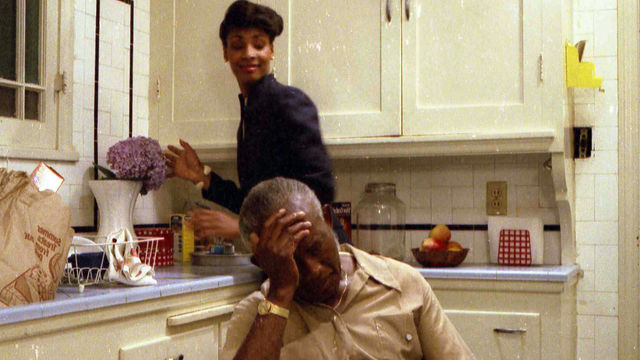
My Brother's Wedding / Residue
- This is a past program
Part of the UCLA Film & Television Archive’s American Neorealism, Part Two: 1984-2020 screening series. Register at cinema.ucla.edu to attend this in-theater screening.
My Brother’s Wedding
To see Pierce Mundy (Everett Silas) on a typical day, you’d think he never got a rest, between working shifts at his parents' dry cleaners and caring for his elderly grandparents to name a few of his self-appointed errands around his South Central neighborhood. For all his apparent energy, Pierce remains directionless, especially compared to his older brother, an upwardly mobile lawyer about to marry into a prominent family. When a friend returns home after a stint in prison, Pierce’s lack of ambition comes into sharp focus and choices will have to be made. Charles Burnett’s follow up to Killer of Sheep went unseen for decades until Milestone Films acquired it and allowed Burnett to finally finish his edit of the film. This director’s cut version is a warm, generous and powerful portrait of a neighborhood, a family and a young man in transition.
(1983, dir. Charles Burnett, digital video, color, 80 min.)
Residue
After studying film in Los Angeles, Jay (Obi Nwachukwu) drives back to the Washington, D.C. neighborhood where he was raised with plans to make a movie there. While he was away, the systemic challenges facing its Black community—economic neglect, injustice and gentrification—have only accelerated and as a montage of western skies and interstate highways flashes across the screen, Jay’s doubts whisper in voiceover “Did you actually think a script could make a difference?” If writer-director Merawi Gerima questions the validity of the very project he’s just gotten underway, the film that follows provides a resounding answer. As Jay struggles to reconnect with his past to make sense of the present, Gerima illuminates the multiple histories—private and public, personal and political—that can converge and clash over just a few city blocks. It’s an expansive, deeply personal activist vision that makes its own case for the power of representation to celebrate a people’s strength and sustain its perseverance.
(2020, dir. Merawi Gerima, DCP, color, 86 min.)


